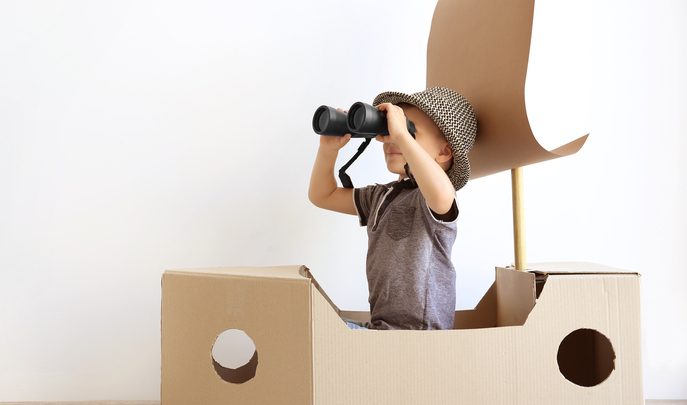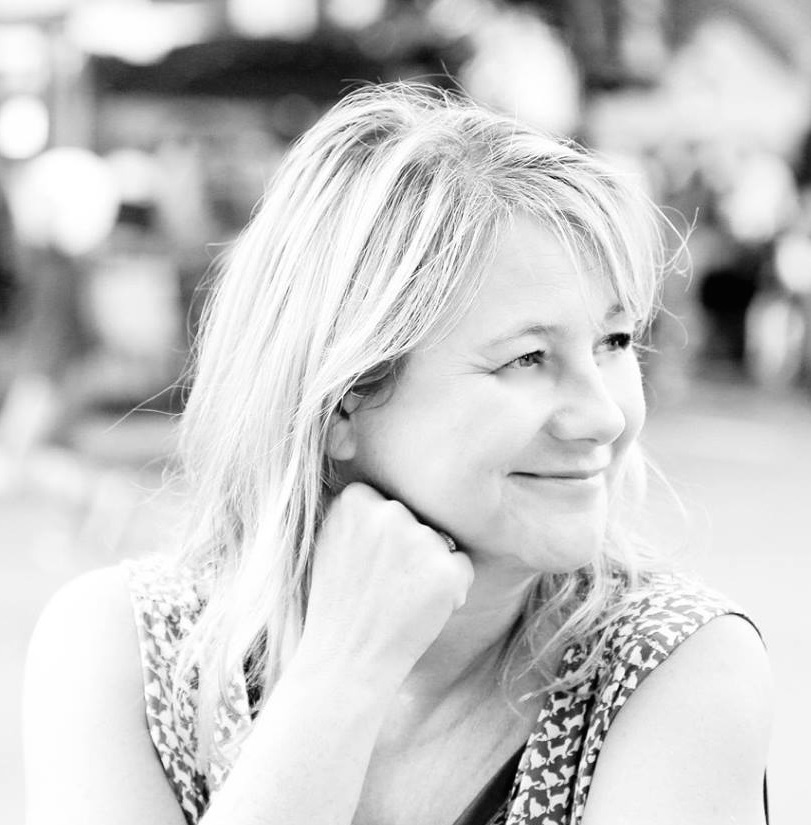Don’t Impose A ‘Today We Will Learn’ – Entice With A ‘We Need To Know’

The curriculum demands lessons on geography, languages and science – but what if we simply helped a little boy and his companion survive a long and treacherous journey instead, asks Debra Kidd…

- by Debra Kidd
- Educator, author and speaker with over 30 years in teaching Visit website

We’re packing a suitcase for a journey to the South Pole. We don’t really have much room in our rowing boat, so every item has to matter.
I’ve not imposed a ‘Today we will learn’ on the class; I’ve enticed a ‘We need to know’ from the pupils. The difference is massive. It piques interest and generates questions, and places a child in the powerful position of ‘The one who knows᾿ within his peer community. He doesn’t know it all, though – he needs help, so we learn about desalination together. But it’s now a partnership, and my expertise is much more nuanced than merely having subject knowledge. It relies on a complex pedagogical knowledge – of both the children and research into the power of narrative. This is not discovery-based learning; it’s inquiry-led learning, driven by a purpose.
Learning for a purpose
As we go through our scheme of work based on the story Lost and Found by Oliver Jeffers, we don’t learn about languages and culture and weather and geography because the curriculum says we must. We do it because the boy and his penguin need to stop off on their journey in many different countries, and knowing how to communicate in these places will help them – as will being able to navigate.
We don’t write postcards home to meet a curriculum goal, or to show Ofsted that the children are able to write short, simple and accurate sentences. We do so because the boy’s mum said he should, so that she would know he was safe. Writing, doing, and learning for a purpose motivates children. It makes their learning more memorable.
Taking the time to wade through subtext, pre-text and backstories; filling in gaps; firing the imagination; building contextual knowledge and vocabulary – these things are not time-consuming luxuries. They are rich educational experiences. Beneath every line of every story is a world waiting to be discovered.
Happy adventuring. Just don’t drink the salt water!
Debra Kidd has worked in education for over 20 years, teaching children from the ages of four right through to post-graduate students. She currently delivers CPD both nationally and internationally – for more information, visit www.debra-kidd.com or follow @debrakidd
The children have studied maps and globes, plotted our journey and looked at images of the kinds of places we’ll visit along the way – France, Morocco, Ghana and Antarctica. They understand that some places will be really hot and others really cold, that there will be times when the sea is stormy and times and others when it is calm; and that there is nothing to protect the people in the boat from the searing heat of the sun. They need to pack carefully. One by one, the children bring forward pictures they’ve drawn of a precious item to pack. A compass. Some suncream. A bottle of water. “I don’t need that!” I tell the last child. “You do – everyone needs water.” “ I’ll be on the sea, there will be water, water everywhere!” I declare, crossing my arms. “Oh,” says the child dejectedly, returning to his seat with the offering. “But you could drink it then use the bottle for other things,” says another child helpfully. “Like if a big wave comes and there’s water in the boat that you need to get out.” In the corner another child is trying to speak, but he’s a bit reserved, so he stops. Then, plucking up his courage, he comes over, tugs at my top and whispers, “You can’t drink the sea water. It’s salty. It will make you sick.”
Taking a risk
I know this. But I didn’t let them know that I knew. Why? Isn’t the teacher supposed to be the locus of control? The font of all knowledge? Wouldn’t an inspector sitting at the back of the class be scribbling unflattering notes about my lack of subject knowledge? Haven’t I run the risk of a child running home to tell her parents that silly Mrs Kidd thinks you can drink sea water?
In a way, yes – but in taking the risk, I’ve opened up something else. I now know who knows. And this child feels empowered.
Besides, this is not silly old ‘Mrs Kidd’ standing here; I’m in role as a boy with a small boat taking a penguin home. And I now have a reason to explore this important issue – the difference between fresh and salt water and the effects of salt on our bodies – within a narrative context, which makes learning more memorable for children.
I’ve not imposed a ‘Today we will learn’ on the class; I’ve enticed a ‘We need to know’ from the pupils. The difference is massive. It piques interest and generates questions, and places a child in the powerful position of ‘The one who knows᾿ within his peer community. He doesn’t know it all, though – he needs help, so we learn about desalination together. But it’s now a partnership, and my expertise is much more nuanced than merely having subject knowledge. It relies on a complex pedagogical knowledge – of both the children and research into the power of narrative. This is not discovery-based learning; it’s inquiry-led learning, driven by a purpose.
Learning for a purpose
As we go through our scheme of work based on the story Lost and Found by Oliver Jeffers, we don’t learn about languages and culture and weather and geography because the curriculum says we must. We do it because the boy and his penguin need to stop off on their journey in many different countries, and knowing how to communicate in these places will help them – as will being able to navigate.
We don’t write postcards home to meet a curriculum goal, or to show Ofsted that the children are able to write short, simple and accurate sentences. We do so because the boy’s mum said he should, so that she would know he was safe. Writing, doing, and learning for a purpose motivates children. It makes their learning more memorable.
Taking the time to wade through subtext, pre-text and backstories; filling in gaps; firing the imagination; building contextual knowledge and vocabulary – these things are not time-consuming luxuries. They are rich educational experiences. Beneath every line of every story is a world waiting to be discovered.
Happy adventuring. Just don’t drink the salt water!
Debra Kidd has worked in education for over 20 years, teaching children from the ages of four right through to post-graduate students. She currently delivers CPD both nationally and internationally – for more information, visit www.debra-kidd.com or follow @debrakidd










